Configuring Incoming Threat Protection
In order to install and configure Metadefender Email incoming threat protection, you must first install Metadefender Email and then configure the routing of the incoming threat protection, verify the routing settings, and then connect to your e-mail gateway.

Installation
Generate Metadefender Email installer package from Metadefender Core Management console. "Source">"Metadefender Email" > "Setup" page, choose "Generic / Cloud Agent". Download the Metadefender Email installer, copy it to where you want to install it, and follow the installation wizard to finish installation.
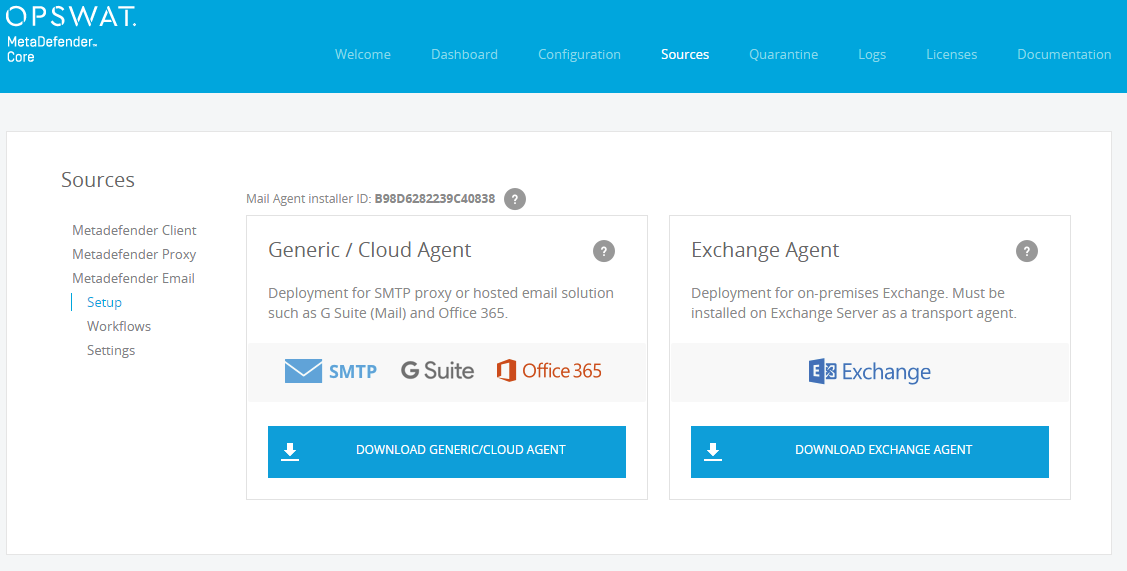
If you get Metadefender Email installer from OPSWAT portal or another source other than the Metadefender Core server you want it to process with, run the installation by opening a command prompt and type the following command:
MetadefenderEmailAgent.exe METASCANAPIKEY=<Mail Agent installer ID> METASCANURL=http://<Metadefender Core IP address>:8008/metascan_rest [ENTER]Notes:
-
Replace <Mail Agent installer ID> with the ID shown on Metadefender Core management console source page under Email setup sectionNote:
-
Replace <Metadefender Core IP address> with the IP address or hostname of the machine where you have installed Metadefender Core.
-
Metadefender Email will automatically detect if Exchange Server is installed or not and install the appropriate edition (Proxy/Exchange)
Configure Routing & Connect to E-mail gateway
In this section, you will connect Metadefender Email to your mail server & e-mail gateway.
-
Open the Metadefender Core Management Console.
-
Select Sources > Metadefender Email > Setup.
-
Click Setup on the newly installed Metadefender Email instance.
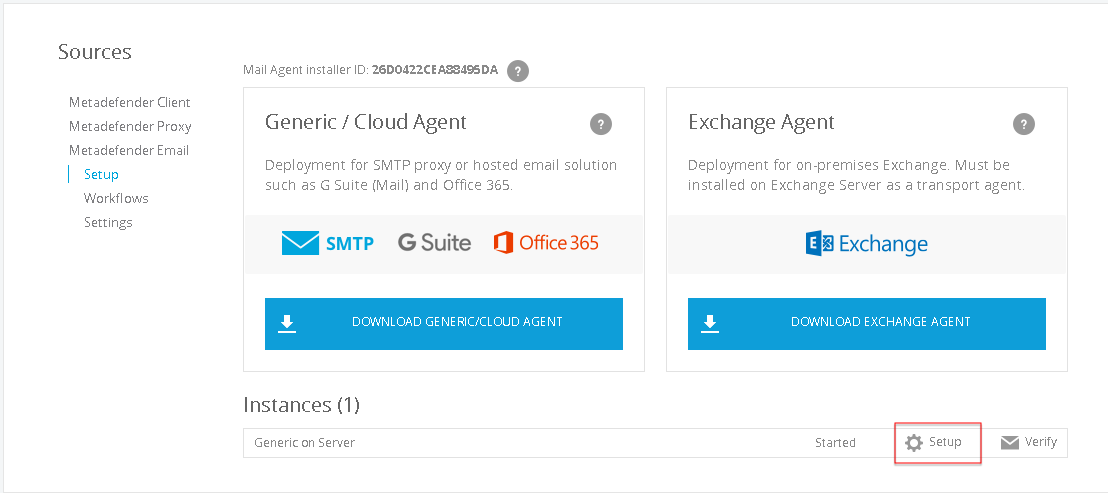
-
In the Email Relay Out Server field, specify the IP address (or name) of your mail server and the SMTP protocol port that the mail server is listening on (usually port 25).
-
In the Email Direction field, select Incoming.
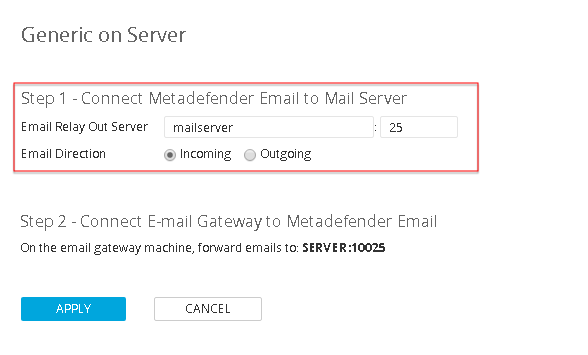
-
Configure your 3rd party e-mail gateway to forward all e-mails to the server:port specified in the dialog.
Note: By default, Metadefender Email listens on SMTP port 10025. Make sure that your firewall allows traffic on the port used by the Mail Agent. You might need to open port 10025 in Windows Firewall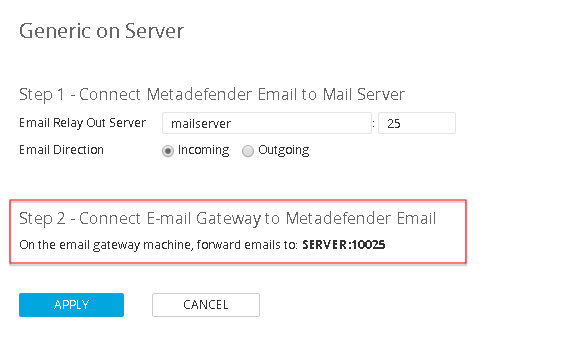
-
Click Apply to save your changes.
Verify Settings
In this section, you will verify your configuration settings and confirm that Metadefender Email works as expected.
-
Open the Metadefender Core Management Console.
-
Select Sources > Metadefender Email > Setup.
-
Click Verify on the newly configured Metadefender Email instance.
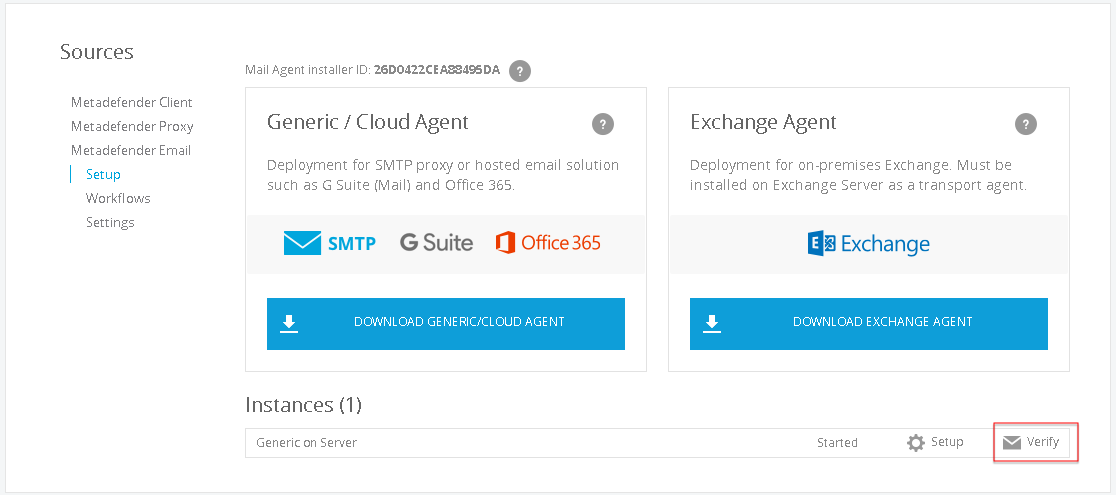
-
Select Incoming as verification type and specify an external e-mail address as sender and a local mailbox as recipient.
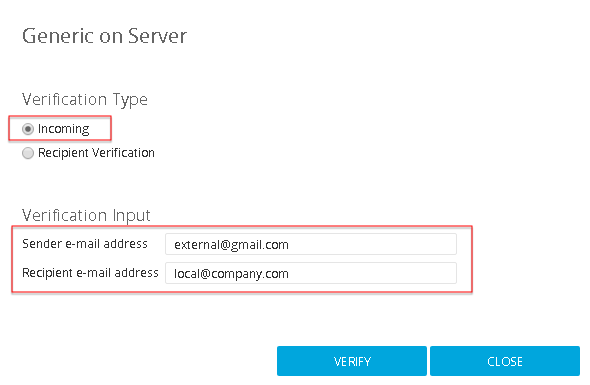
-
Click Verify to perform the test. If the test is successful, Metadefender Email is configured correctly.
-
Optionally, manually send an e-mail from an external source to a local mailbox to verify that email routing from the gateway to Metadefender Email is configured correctly.
-
Go to the Metadefender Core Management Console Dashboard and verify that the e-mail has been scanned.